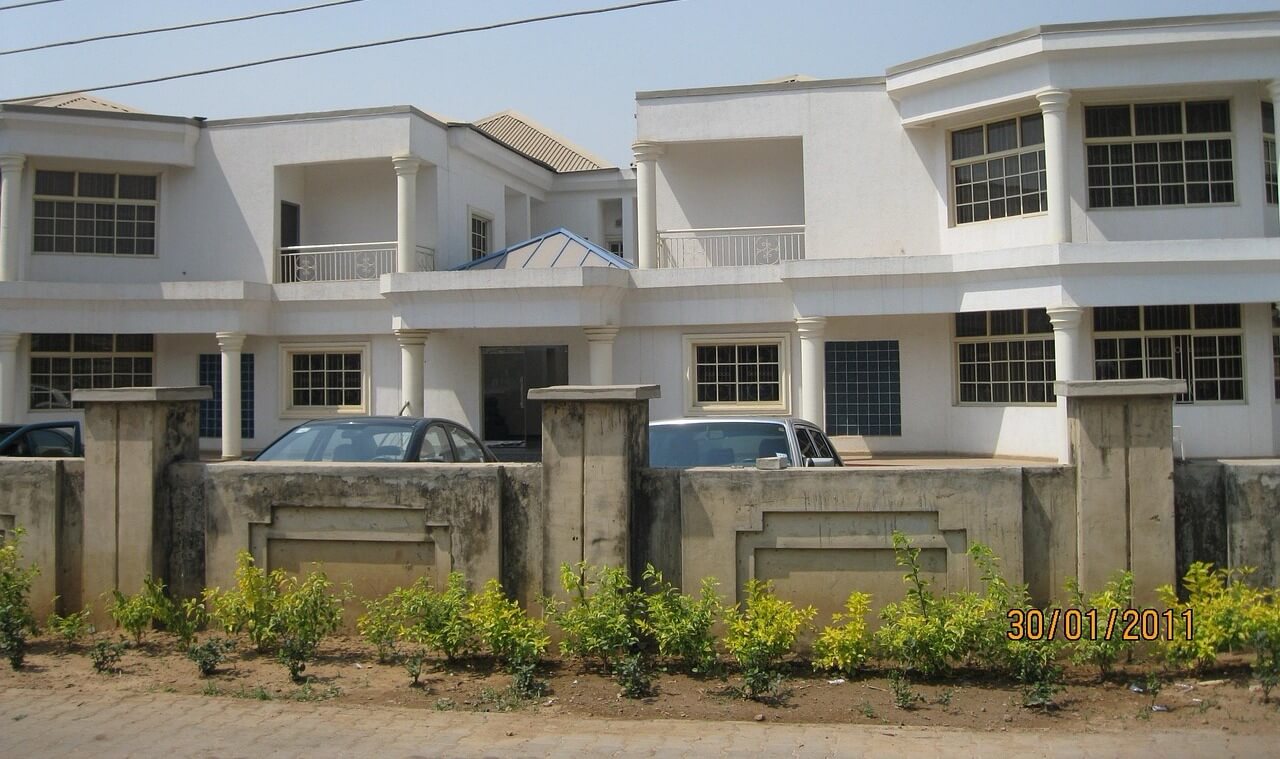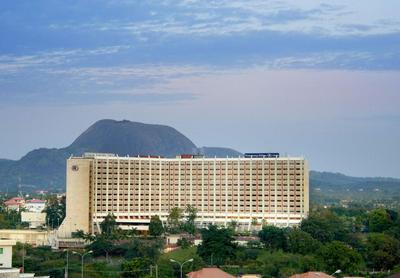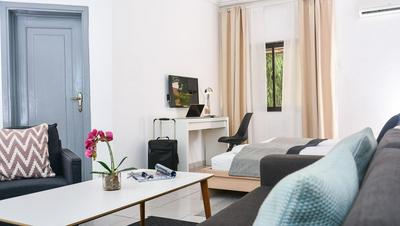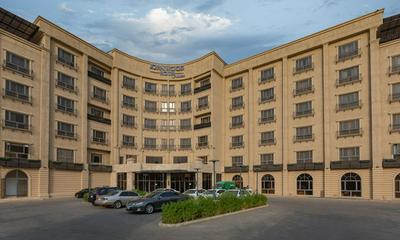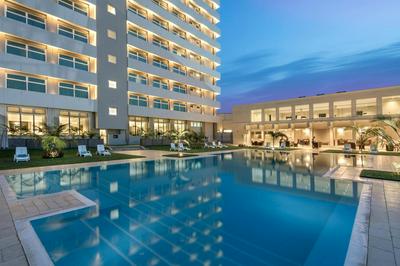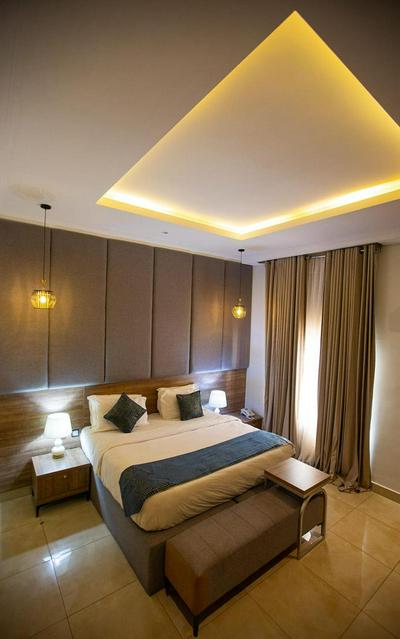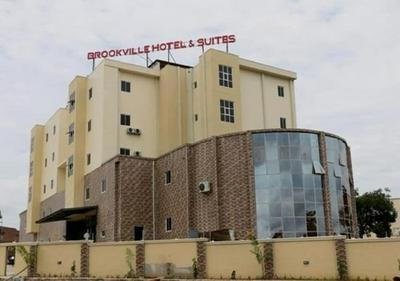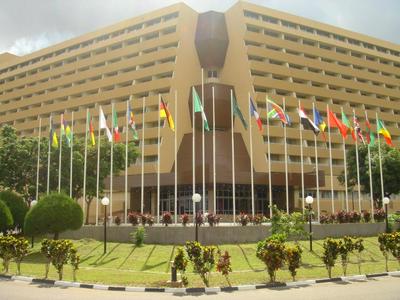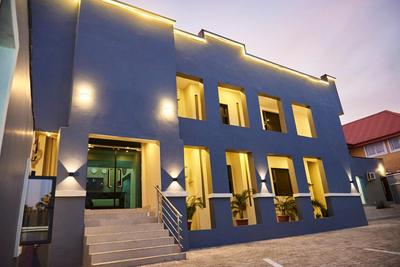When to visit Abuja?
Abuja, the vibrant capital city of Nigeria, boasts a tropical savanna climate, characterized by a distinct wet and dry season. The dry season, which usually lasts from November to March, is arguably the best time to visit as the weather is dry and temperatures are more comfortable, averaging around 25°C to 30°C (77°F to 86°F). This period is popular among tourists, especially around December when festivals and end-of-year celebrations take place.
During the wet season, from April to October, Abuja experiences heavy rains, particularly from June to September. While temperatures remain warm, often exceeding 30°C (86°F), the rain can disrupt outdoor plans. However, if you're seeking lush landscapes and a quieter atmosphere, visiting between April and May can be enjoyable. This is the time before the heaviest rains kick in, presenting opportunities to explore the city with fewer tourists.
As for the shoulder seasons, September and October can also be good for visitors, as the rains start to taper off but the scenery is still vibrant and lush. Each season has its charm, but for those looking to indulge in outdoor activities and cultural festivals, planning a trip during the dry months will make for a more enjoyable experience.
How to get to Abuja?
Reaching the city of Abuja is relatively straightforward, as it is well-connected by air, land, and road. The Nnamdi Azikiwe International Airport serves as the main gateway into the city, accommodating both domestic and international flights. Located about 40 kilometers (25 miles) away from the city center, the airport provides connections across Africa, Europe, and other continents. Upon arrival, taxis and ride-hailing services are readily available for the journey into town, taking roughly 45 minutes to an hour depending on traffic.
If you prefer to travel by road, several long-distance buses operate from various cities across Nigeria to Abuja. Company names such as ABC Transport and Chisco offer reliable services, with travel times varying from 8 to 12 hours depending on your departure city. For example, a bus ride from Lagos can take about 12 hours, while from Kano, it may take roughly 8 hours.
For car travel, major highways connect Abuja to other Nigerian cities, making it accessible for those who wish to drive. The city is well-connected with well-paved roads, but consider traffic conditions, especially during peak hours. Overall, whether you travel by plane, bus, or car, getting to Abuja makes for an exciting journey into Nigeria's heart.
Tourist activities in Abuja
Abuja offers a rich tapestry of activities for every traveler. By day, you can explore cultural sites like the iconic Aso Rock and the Nigerian National Mosque, which are architectural feats that showcase the country’s heritage. The Jabi Lake Park is another delightful spot, perfect for picnicking, boat rides, or simply enjoying the serene atmosphere.
For those seeking adventure, the nearby Olumirin Waterfall provides a breathtaking backdrop for hiking and appreciating nature. Art lovers can’t miss the National Museum, housing a collection of Nigerian artifacts and cultural treasures. Shopping enthusiasts may enjoy the bustling Streets of Wuse Market, where vibrant stalls offer local crafts, textiles, and delicious street food.
As night falls, Abuja comes alive with its vibrant nightlife. With numerous bars, lounges, and clubs scattered throughout the city, there are plenty of places to unwind. From live music venues to trendy cocktail bars, Abuja has something for everyone. Overall, the city's blend of culture, nature, and nightlife creates an unforgettable experience.
Events and festivals
Abuja is a city that celebrates its cultural diversity through various events and festivals throughout the year. One of the most significant events is the Abuja Carnival, usually held in December. This colorful festival features parades, music, dance, and artistic performances that reflect Nigeria’s rich cultural heritage.
Another major event is the Nigeria International Trade Fair, typically taking place in October. This event attracts exhibitors and visitors from around the world, showcasing a plethora of products ranging from crafts to technology. In addition, the Nigerian Film Festival, usually held in September, celebrates the achievements of filmmakers in the country and screens numerous films.
Traditional music and cultural festivals like the Osun-Osogbo Festival are also celebrated, drawing visitors from across the globe to partake in performances and rituals. All these events provide an excellent opportunity for tourists to engage with the local culture and experience the communal spirit of Abuja.
Family and kids activities
When it comes to family-friendly activities in Abuja, there are plenty of options that cater to all ages. Jabi Lake Park is an ideal place for families, offering playgrounds and open spaces for children to run around while parents relax by the lakeside. Another popular spot is the National Children’s Park and Zoo, which features various animals and adventure playgrounds, making it a perfect day out for families with kids.
Museums like the Nigerian National Museum are great for educational yet entertaining visits, showcasing history and culture in a child-friendly environment. In addition to these, family-friendly events often take place in the city parks and community centers, providing entertainment through activities and workshops focused on art and culture.
Whether you’re enjoying nature at the parks or exploring history at museums, Abuja offers numerous engaging activities to keep the whole family entertained!
What to see in Abuja?
Abuja is filled with attractions that reflect its cultural significance and natural beauty. Here are some must-see spots:
- Aso Rock: This striking rock formation stands at 400 meters and is an iconic symbol of Abuja, offering stunning views of the city.
- Nigeria National Mosque: One of the largest mosques in Africa, this magnificent structure showcases breathtaking architecture and is open to visitors during designated times.
- Nigeria National Christian Centre: An architectural marvel, it's a notable place of worship that invites visitors to admire its design.
- Jabi Lake: An expansive artificial lake perfect for recreational activities, including boat rides and picnics by the water.
- National Museum: This museum houses artifacts that tell the story of Nigeria’s diverse culture and history, making it a cultural treasure.
- Millennium Park: A beautifully landscaped park ideal for leisure walks, picnics, and family gatherings.
- Art and Craft Village: A vibrant marketplace where local artisans showcase and sell their crafts, a perfect spot for unique souvenirs.
Accommodation in Abuja
Abuja offers a variety of accommodation options to suit different budgets and preferences. For luxury travelers, five-star hotels like the Transcorp Hilton and Sheraton Abuja are notable mentions, providing top-notch services and amenities like swimming pools, restaurants, and spas.
If you’re looking for mid-range options, numerous boutique hotels and guesthouses offer comfort and a welcoming atmosphere, such as the Abuja Continental Hotel. For those on a budget, there are several hostels and budget hotels available, particularly in the Wuse and Garki neighborhoods, which are accessible and close to key attractions.
Staying in the city center gives you quick access to restaurants and nightlife, while accommodations outside the bustle offer a more relaxed environment. No matter where you choose to stay, Abuja has something for everyone.
Important numbers and information
- Emergency Numbers: Police - 112, Medical - 07080630020, Fire Department - 08035194241.
- Tourist Information Center: 123, Ibrahim Babangida Boulevard, Maitama.
- Main Hospitals: National Hospital - 08012345678, Kuje General Hospital - 08087654321.
- Airport Contact: Nnamdi Azikiwe International Airport - +234-9-828-5996.
- Public Transport Information: Abuja Transport Company - 07088888888.
- Taxi Apps: Uber, Bolt.
- Currency: Nigerian Naira (NGN).
- Payment Methods: Credit cards widely accepted, cash preferred in markets.
Where to eat?
Abuja’s culinary scene is a wonderful blend of traditional Nigerian flavors and international cuisines. Local dishes to try include Jabba Rice, Suya (spicy grilled meat), and Pounded Yam served with a variety of soups. Popular areas for dining include Wuse and Garki, which offer a mix of upscale restaurants and casual eateries.
Street food is also essential here; you can find hawkers selling delicious snacks like Akara (bean cakes) and Boli (grilled plantain). Most meals in local restaurants range from ₦1,000 to ₦3,500, while upscale dining experiences may hit ₦5,000 to ₦15,000. Whether you prefer fine dining or trying street food, Abuja has a diverse culinary landscape to explore.
Nightlife – where to go out?
The nightlife in Abuja is vibrant and diverse, offering something for every night owl. For a relaxed atmosphere, you can unwind at lounges like The 2nd Floor and La Mango, which are known for their excellent cocktails and live music. If you’re in the mood for dancing, clubs like Spicy and Club 57 boast lively DJs and an electric dance floor that keeps the energy high late into the night.
The central districts of Wuse and Jabi are where much of the nightlife buzz happens, with various bars and clubs concentrated in these areas. Expect a mix of locals and visitors enjoying the vibrant atmosphere, live performances, and themed parties. Whether you're looking to sip cocktails with friends or dance the night away, Abuja's nightlife offers plenty of exciting options.
Transport and taxis
Getting around Abuja is relatively easy with various transportation options available. Public transport in the form of buses operates in scheduled routes, with fares usually starting at around ₦200. However, these buses may not always adhere to a strict timetable.
Taxis are abundant and can be found throughout the city. Ride-hailing apps like Uber and Bolt are popular for convenience and safety. Taxi fares are generally reasonable, but it’s wise to agree on the fare beforehand or confirm the estimated cost through an app.
For those who prefer to explore on foot, many attractions in central Abuja are in proximity to each other, making it practical for walking. Always exercise caution and stay aware of your surroundings. Here's a quick overview:
- Bus fare: Starting at ₦200.
- Taxi rates: Typically ₦1,000 - ₦2,500 depending on distance.
- Key apps: Uber, Bolt.
Parking and public garages
Finding parking in Abuja can vary depending on the area you’re in. Major commercial districts often have designated parking spaces, but during peak hours, these can fill up quickly. Street parking is available, but always check for signs indicating whether parking is allowed.
Public garages are also present in key locations like shopping centers, where you can safely park your vehicle for a fee that typically ranges from ₦200 to ₦500, depending on the location. For ease, it’s wise to always have some cash on hand for parking fees. If driving in Abuja, it’s also essential to be aware of local traffic regulations and potential roadblocks.
Surroundings of Abuja
Beyond the bustling city life of Abuja, there are several delightful spots worth a day trip. One popular destination is the town of Jos, known for its cooler climate and beautiful landscapes. The Jos Wildlife Park and the National Museum in Jos are popular attractions for nature lovers and history buffs alike.
Another nearby gem is the Awhum Waterfall, located just a few hours away, providing an enchanting experience amidst nature. For those interested in historical sites, the town of Zaria is home to ancient buildings and museums detailing Nigeria's rich past.
These day-trip locations offer a blend of culture, nature, and relaxation, making them perfect for anyone looking to explore the surroundings of Abuja.
